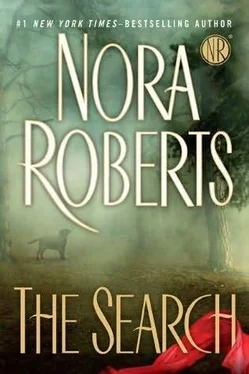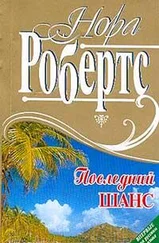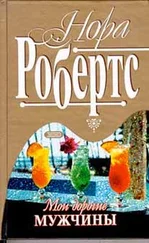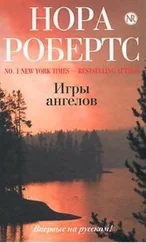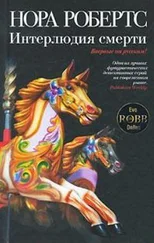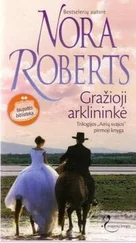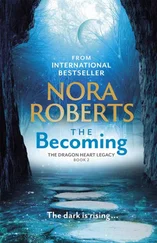“Fee,” Sylvia said before Fiona left the room.
“Yeah.”
“It’s been nearly eight years now, for both of us.”
“I know.”
“It hit me this morning. Sometimes it does when it comes up on the anniversary of Will’s death. So I just wanted to get out of the house—and more, to see you. I want to tell you how glad I am you’re here, that I can come by and fix you breakfast, or borrow your Uggs. I’m so glad, Fee.”
“Me too.”
“He’d be so proud of you. He was proud of you, but—”
“I know he was, and I like knowing he’d be proud and happy with what I’ve done. With what I’m doing.” She let out a breath. “Greg would, too. I think. So much of him’s faded, his voice, his scent, even his face. I never thought I’d have to pull out a photo to bring his face clearly into my head.”
“Seven years is a long time. You were so young, sweetie. I know you loved him, but you were so young. You didn’t have much time together really.”
“Almost two years, and he taught me so much. I have what I have now because of what Greg taught me, what he showed me, what he gave me. I did love him, Syl, but I can’t remember what it felt like anymore. I can’t bring back how he made me feel.”
“We loved him, too, your dad and I. He was a good, good man.”
“The best.”
“Fee, maybe you can’t bring back what you felt for him because it’s time you let yourself feel for someone else.”
“I don’t know. Sometimes... well, sometimes I’m not sure I’ll ever be ready for that.”
“Feelings don’t always happen when we’re ready for them.”
“Maybe not. Maybe I’ll get a surprise. But for now, I’ve got enough to keep me occupied. Don’t forget the Uggs.”
After her advanced class, a group of six including Oreo, Fiona prepared for her special-skills group, novice level. Most of the students were off-islanders with hopes to earn certifications as Search and Rescue dogs. Some in this larger class would make it, some would not. But she knew every dog and owner would benefit from the additional and more specialized training.
As students arrived, it was socialization time—for canines and humans. Not a waste of time, in her opinion, but a vital step. A dog who couldn’t be or wouldn’t be socialized would never make the cut. And the ten-minute “mixer” gave her the opportunity to judge how well the dogs and handlers were doing with their at-home training.
She watched, her hands in the sagging pockets of an ancient hooded jacket. “Okay, let’s get started. We’ll run the basics first.”
She ran them through heeling, on then off leash—with mixed results.
“Snitch, Waldo,” she said, addressing the dogs rather than the owners.
“We’re going to need to practice those off-leash skills a little more at home. We’re close, but you can do better. Let’s try recall. Handlers, step away. I want you to wait until your dog is distracted, then give the command. Let’s be firm. Don’t forget reward and positive reinforcement.”
She deliberately distracted some of the young dogs herself. Petting, playing. Still, the percentage of success pleased her. That percentage faltered on drop on recall as most of the dogs wanted to play when called.
She culled out the worst offenders, assigning the others to work on sitstay while she did a few one-on-ones.
“There are good reasons you need your dog to stop instantly. There could be danger he doesn’t understand. In addition, that instant and complete response shows absolute trust. When you say Stop! or whatever word you choose for that command, your dog needs to obey without hesitation. Let’s work on this with close proximity. Walk with your dog heeling, off leash, then try your drop command. Callie, can I use Snitch to demonstrate?”
It wasn’t the dog portion of the partnership that needed work, but the human, in Fiona’s opinion. Callie tended to be hesitant.
In minutes, with a sure, firm tone, Fiona had the puppy heeling like a champ and dropping on command like a soldier.
“I don’t know why he won’t do it for me.”
“He knows he can mess with you, Callie. He doesn’t believe you mean it, that you’re in charge. You don’t have to yell or be angry, but you have to be firm. Your voice, your face, your body language. Convince him you mean business.”
“I’ll try.”
Slightly better, Fiona judged—but she figured it was residual behavior from her own round with Snitch. Unless Callie toughened up, the little golden would walk all over her, and back again.
“Okay, short break for playtime.”
It was the signal her own dogs waited for. They joined in the five minutes of chaos, the running, fetching, bounding after balls, rolling in wrestling groups.
“I don’t mean to complain.”
Fiona added on another layer of patience as Earl Gainer, retired cop and owner of a very clever young German shepherd, began all his complaints the same way.
“What’s the problem, Earl?”
“I understand one of your tenets is exploiting the play drive, but it just seems to me we spend an awful lot of time letting all these dogs fool around.”
And time, she knew, meant money as well.
“I know it might seem frivolous, but at this age, their attention span is very short. There’s a real danger of overtraining. If a dog gets frustrated, simply can’t keep up with all the new demands and expectations, he can give up, or revert or rebel. They need time to work off some of that puppy energy—and to continue their socialization with other dogs, other humans. We’re going to try a couple new things in the second thirty minutes today.”
Earl brightened immediately. “Like what?”
“Let’s give them another couple minutes. Kojak has a lot of potential. You know that. He’s smart, eager to please. If you stick with this another couple weeks, we’ll be into some scent training. Before we go there, we’re going to cement the bond, the socialization and the tractability.”
Earl puffed out his cheeks. “I heard about what you and your dog did yesterday, finding that boy. That’s what I want to do.”
“I know, and with your training, your experience, you’ll be a great asset. Let’s help Kojak want to do the same. He’s on his way, I promise you.”
“Everybody who knows says you’re one of the best in the state, maybe in the Northwest. That’s why we’re taking that ferry ride twice a week. Well, hell, he’s having fun anyway.”
“And learning.” She gave Earl’s arm a pat.
She called her own dogs, sent them to the porch where they sprawled to watch the show.
“Heel your dogs,” Fiona called out, and waited for the line to form. “A Search and Rescue dog can and is called on to search in various terrains, rough ground, frozen ground, rock, woods, urban settings. And water. Today, we’re going to introduce water.”
She gestured to a child’s wading pool she’d already filled, then picked up a rubber ball. “Each of you, in turn, will take your dog off leash, then toss this ball into the pool. I want you to command your dog to fetch. Don’t worry. I have towels. Earl, why don’t you and Kojak go first? Position about ten feet away.”
Earl took the ball, got into position. He unleashed his dog, gave him a quick rub, showed him the ball. “Get it, Kojak!” he yelled as he tossed it.
The dog took off like a bullet, made a leap—and a splash. He came up with the ball in his mouth and a shocked look on his face that clearly translated into, to Fiona’s mind, What the fuck!
But he leaped out again, returned to Earl when his master snapped a finger.
Show-off, Fiona thought, but with a grin, and one that widened as Kojak shook ferociously and soaked his proud and praising owner.
Читать дальше
